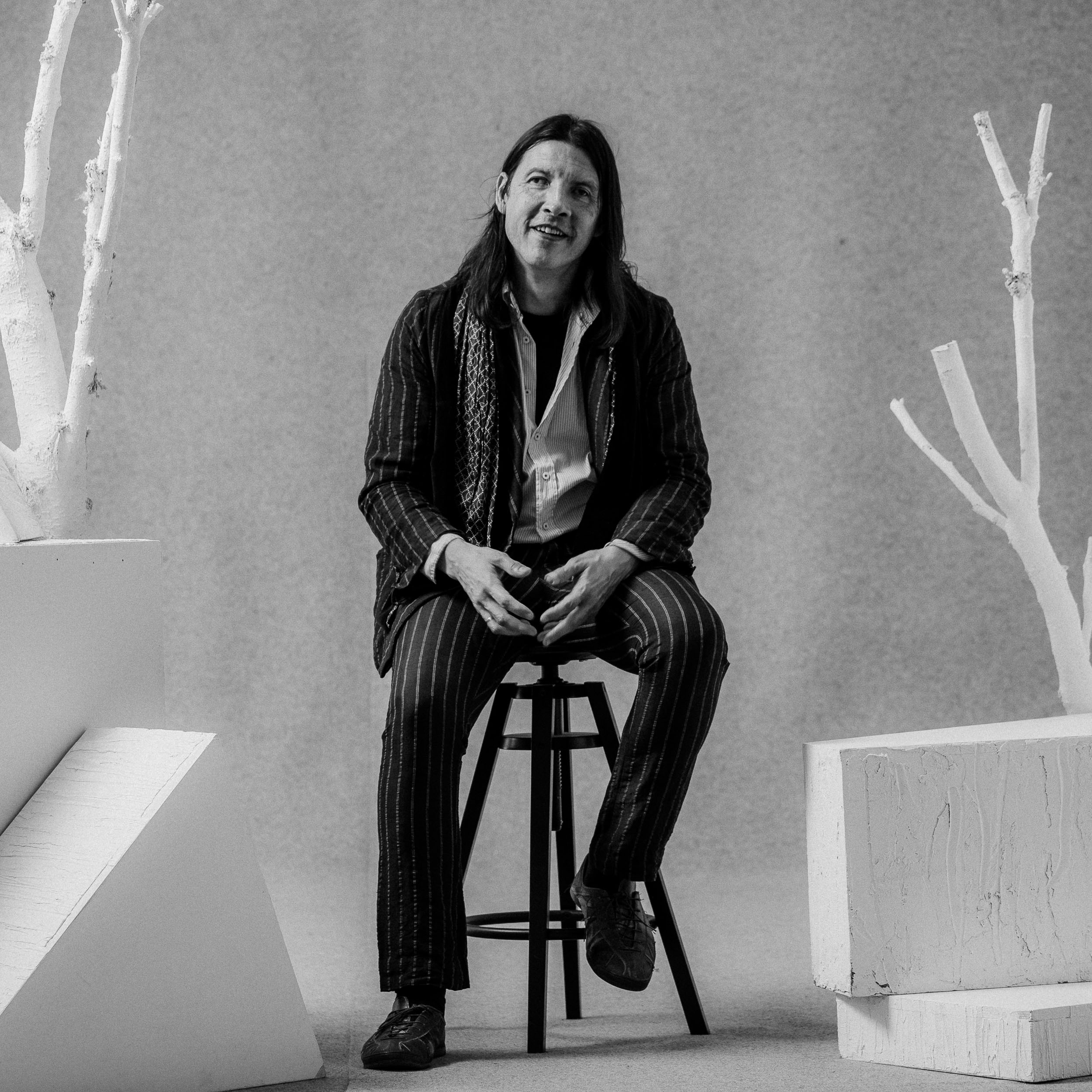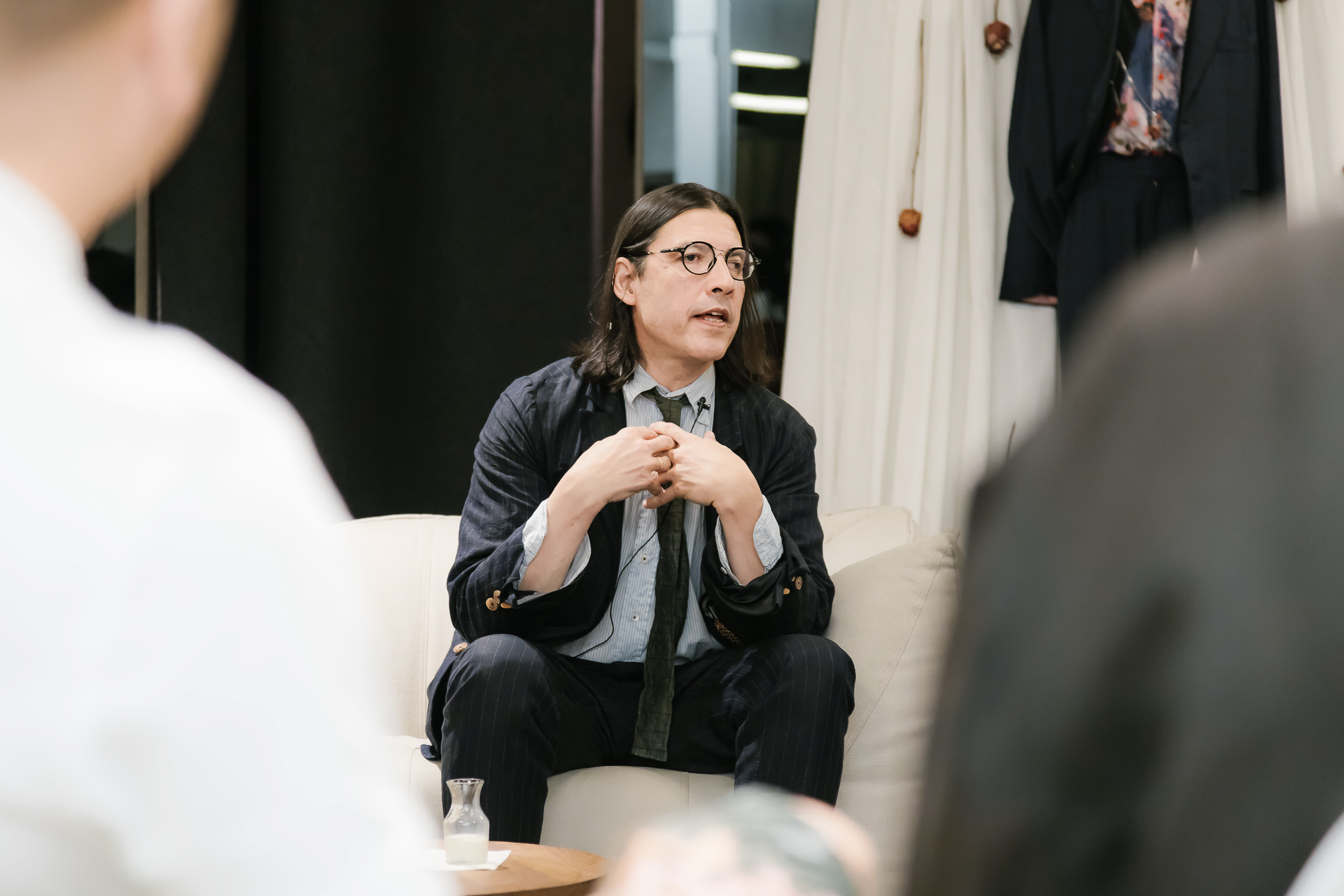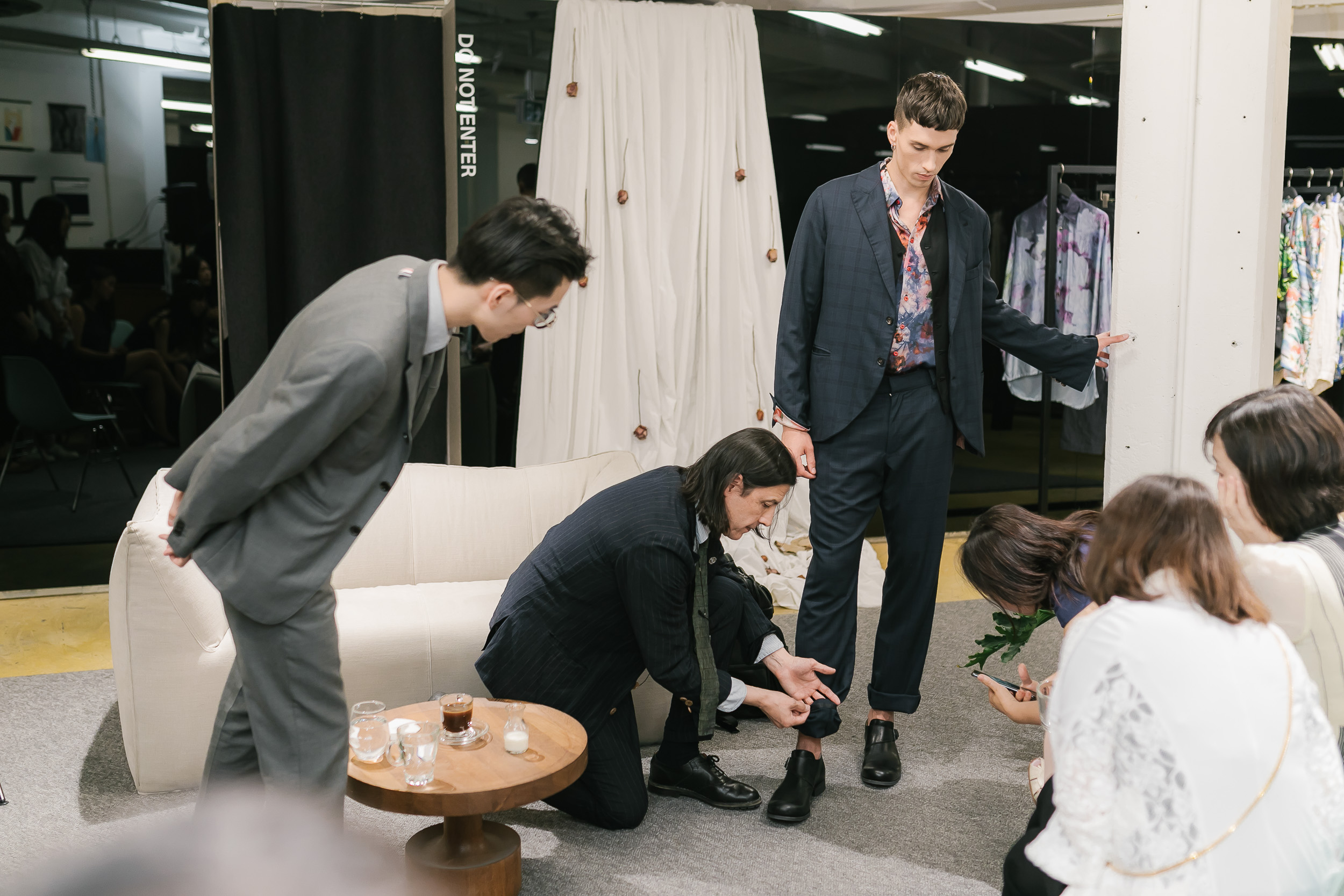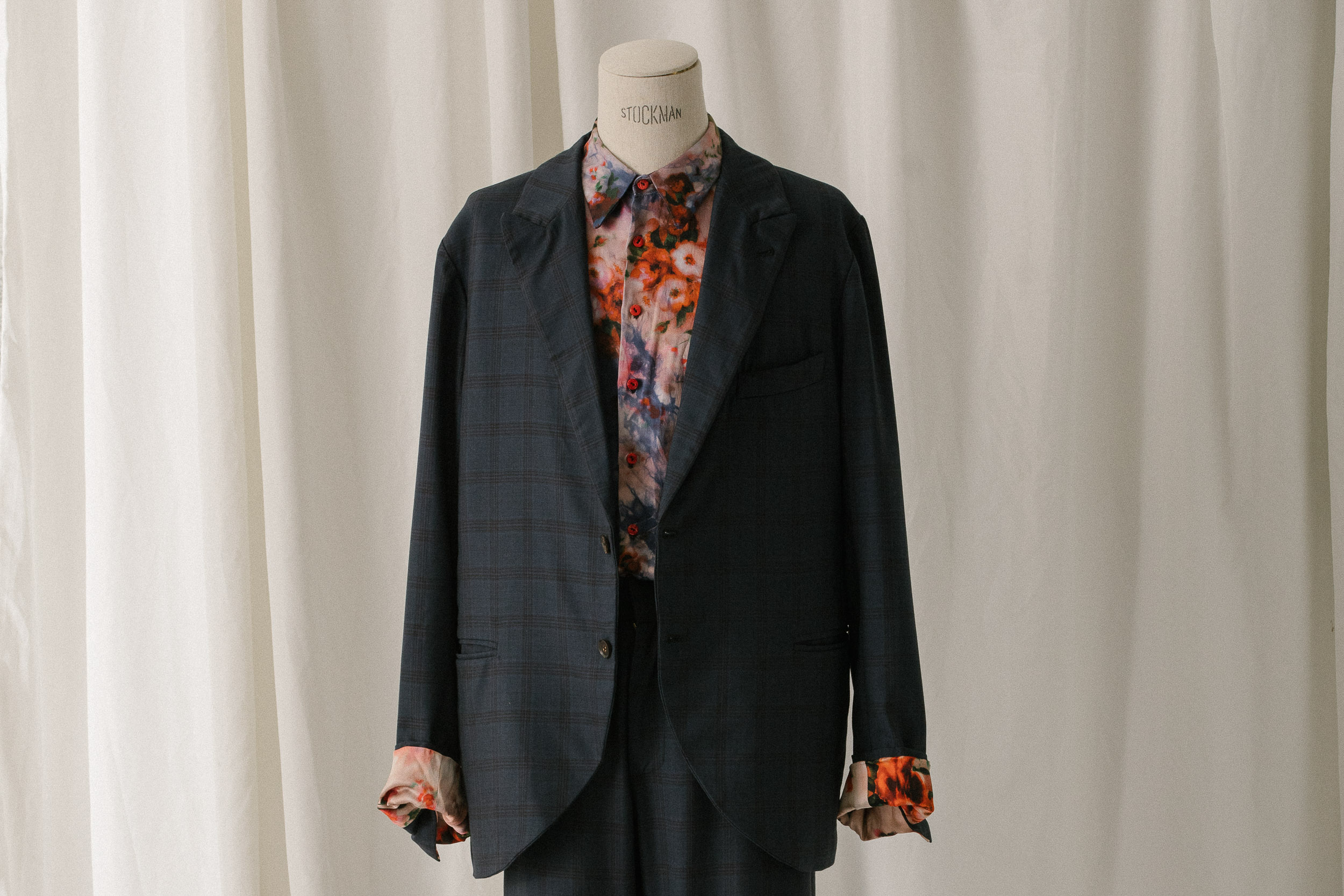“We have one objective and that is to show the world the very, very best clothes that are made by human beings today. No compromises.”
Geoffrey B. Small is at Vancouver’s Leisure Center to introduce the Super 210 Arcadia. “First and foremost, it has to be unbelievably comfortable to wear,” he says of the suit. “Something you can really live in.”
The American-born, Italy-based designer founded his brand—renowned for crafting every piece entirely by hand—in 1993. And, impressively, every piece seeks to serve its owner for at least twenty-five years.
The longevity of the Supersuit commands the finest fabric. The Super 210’s “Arcadia” version features the textiles of the oldest wool mill in operation—a seventh-generation family-owned business committed to its artisanal origins; its name referencing the 210 yarns that make up a single millimetre in width of the fabric. The result? A suit of dark blue-grey wool—as soft as silk—complemented with subtle hints of personality, including an interior silk collage of coral florals.
Small is careful not to produce too many of any one design in the same fabric for fear of losing brand exclusivity. This is not a superficial concern, he insists, but rather because, “we physically and mentally couldn’t make any more pieces.” Only a few thousand (both men’s and women’s) Geoffrey B. Small pieces are produced each year. “We must never ever risk compromising the quality and the excellence and the beauty of any of our pieces.”
A pioneer of the artisanal avant-garde fashion movement, Small is committed to this niche long-term. “We’ll grow to some extent commercially, but we’re never going to be a billion-dollar brand. We don’t want to be the biggest. We just want to be the best.”
And, Small says, being the best means uncompromising standards and attention to detail, including sustainable business practices. He describes at length the three-year “battle” it took to convince a premium garment label maker to develop the first non-polyester designer label. “Little things like that are big things,” he notes.
Small believes that, in order to truly operate sustainably, one must “go back in time” and return the human touch to the clothing business between the maker and the wearer. “When you actually make a piece of clothing for somebody, you work super hard and make sure it’s great,” he explains. “There’s this connection when it’s all done. The thing’s got a vibe in it for both people.”
It’s also fashion with a future. Recently, the designer hosted an event in Boston and several people brought clothes Small made for them as much as 35 years ago—clothes they still wear to this day. “I thought that was amazing,” he says. “And then, for the first time in my life, a couple of them were thinking about passing them on to their kids. There’s no greater honour.”
More stories on Style here.













